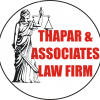Copyrights
A copyright offers protection for original works of authorship. Copyright protection affords the author of a copyrighted work with specific rights that the author can give or sell to others or keep for him or herself.
Copyright law protects expression of ideas, and not the ideas themselves. Copyright refers to a bundle of exclusive rights vested in the owner of the Copyright. These rights can be exercised only by the owner of the Copyright, or any person who has been duly authorized by the owner of the Copyright.
Apart from the Economic Rights that accrue from this, the Moral Rights which are vested in the Copyright owner are inalienable; and, even when the Copyright has been duly assigned to someone else, he can exercise these rights thereafter.
Copyright subsists in the original works of:
Literature
Drama
Music
Art; known together as LDMA.
Cinematographic films, sound recordings, computer programs also get the protection of Copyrights. Neighboring Rights are inclusive of Broadcasting Rights and also extends to cover in its ambit the Performers’ Rights.
The general term of Copyrights is 60 years; add to that the life of the author, in case of LDMA works.
